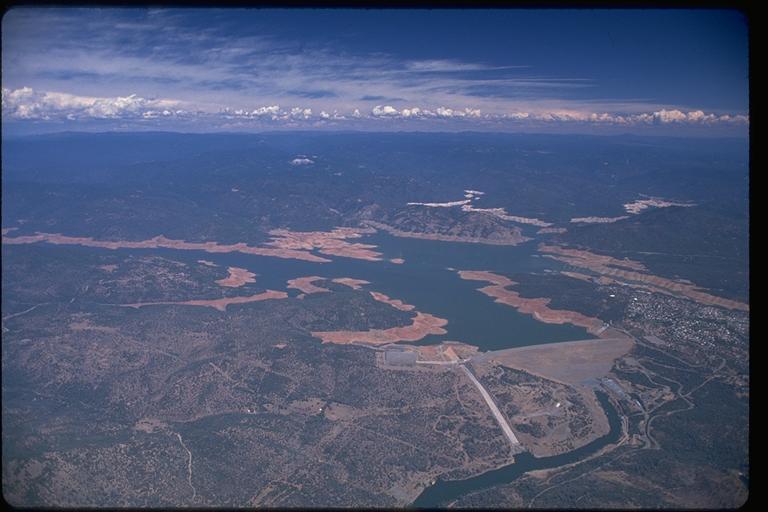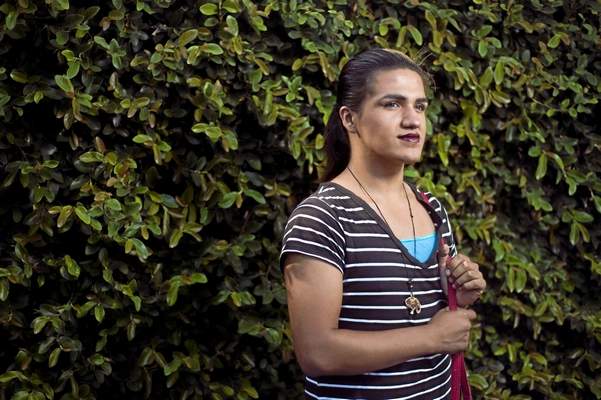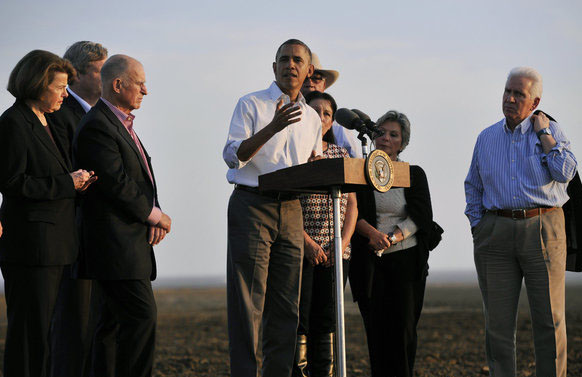
California’s Oroville Dam, opened in 1968. Seven years earlier, then-governor Pat Brown (a Democrat and father of current governor Jerry Brown) declared the sound of Oroville Dam’s construction “will echo in California history for generations to come.”
Over the past few decades, California voters have foolishly voted for what they thought would bring an abundance of clean, affordable water. But they were lied to. Instead, these “water”-labeled ballot measures made the government bureaucracy bigger, gave more power and taxpayer dollars to liberal environmental groups, and robbed people of land, water, and other natural resources that would have served their benefit. And no new water storage was built. Is it any wonder why Californians have less money and more thirst?
This is why there is a water storage problem today, why water prices are going up, and why water rationing is already here. The “new” government’s foolishness and corruption have replaced the “old” government’s wisdom and love for people. This is why we must urgently solve California’s water shortage by building more dams to store water in the wet months for people’s needs in the dry months.
But most of all, we all need to remember that rain is a gift from God (read about the drought in 1 Kings 17). So now is also the time to repent of all known sin and to cry out to God to send rain from the sky.
Listen to my SaveCalifornia.com Minute on why new dams are needed, drought or no drought
“It’s clear we don’t have enough water for people and farmers and ranchers and animals. It’s because we don’t store enough water.”
Less water means more water politics
Dan Walters, Sacramento Bee, Feb. 3, 2014
“…some new storage, that some people believe, with good reason, California needs to prevent future droughts by putting more water beyond reservoirs, either on stream or off-stream, and therefore having more water FOR when a drought hits. The utility of that is demonstrated by what’s going on in Southern California. The drought hits the whole state. But Southern California is not feeling the pinch nearly as badly because it has built reservoirs and has filled them up. And they can last for several more years while Northern California is in danger of drying out altogether, with communities having no water for their customers.”
Parched from drought, California’s reservoirs nearly empty
NBC Nightly News, Jan. 30, 2014
This is the first time an exceptional drought has been declared in California. For communities in 10 counties, water could run out in 60 days. Fourth generation farmer Andy De Montegonni feels the pain. “It’s actually all brown and dried up.” Without rain, he’ll lose this wheat’s rain harvest. He sold livestock just to keep the farm. And he says what’s happening here will affect Americans across the country. “I can’t grow any crop. That doesn’t go to market, and creates a shortage, and what happens with a shortage? Prices go up.”
New dam could ease water woes in the Central Valley
KSFN Ch. 30 Fresno, Aug. 9, 2013
“It’s a small reservoir. Over the past 30 years, we’ve lost about 14 million acre feet to the ocean and we’re continuing to lose water,” said Mario Santoyo, Executive Director of the California Latino Water Coalition. Supporters like Mario Santoyo say the solution is building the Temperance dam within Millerton Lake.
Self-Evident Water Truths by Congressman Tom McClintock
Feb. 27, 2013
Self-Evident Truth #3: Water is unevenly distributed over both time and distance. So if we want to have plenty of water in dry periods we have to store it in wet ones, and if we want to have plenty of water in dry regions we have to move it from wet ones. That is why we build dams and aqueducts and canals.
Which brings us to Self-Evident Truth #4: that we don’t need to build dams, aqueducts and reservoirs if our goal is to let our water run into the ocean. Water tends to run downhill very well on its own and doesn’t need our help to do so. The reason that we build dams, aqueducts, and reservoirs is so that the water DOESN’T run into the ocean, but rather is retained and distributed where it will do the most good.
People kill each other over diamonds; countries go to war over oil. But the world’s most expensive commodities are worth nothing in the absence of water. Fresh water is essential for life, with no substitute. Although mostly unpriced, it is the most valuable stuff in the world.
The world’s most valuable stuff, The Economist, May 20, 2010






 RSS 2.0 Feed
RSS 2.0 Feed